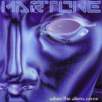Welcome readers to another installment of Zone Recording. I must say thank you for the emails in regards to the last four columns. Please email me with questions or comments and I can hopefully address your questions.
This time I would like to comment on the home recording studio. I am sure that we have all used a 4 track at one point in our lives. I remember my first experience with one. I rented it from Walter Ostenacks Music in St. Catherine's Ontario to do a tape to get into Fanshawe College in London. Of all things, this was a recording school in which we had to submit a tape of our playing and recording skills. I had no clue of even where the 'on' switch was! Thank God for the manual and a patient band, or else my career would have ended before it even started. I proceeded to do covers of Tony MacAlpine and Gary Moore songs that were dear to me in my adolescence. The drums had one mike on them, and the guitars had so much hum that you might think that there was an attack of killer bees coming at you!
I have come a long way since the days of 4-track recording. We now have computer home recording systems that are basically unbelievable in the quality that we can achieve. I was extremely scared on the switch over to computer recording and I have my brother Paul to thank for the change. I must admit that I was intimidated to no ends with the change and the learning curve that was ahead of me but the final result was staggering. For some of us, home computer recording is as much fun as getting your colon cleaned! This is how I felt at first. There is so much software, hardware and extraneous things out there available to us, that to make a decision on what to get is cause for a migraine headache. This is true, but with a little research we can get a kick ass system to cover our every needs. You can create pristine music at home with some loop CDs, recording software, a wave editor and a halfway decent sound card that can rival any recording out there today. This amount of power at home is unbelievable.
The best way to start is to ask what some of your friends are using for their main recording tool. I found that Cakewalk 9.03 has worked flawlessly for me. I also use Sound Forge and Waves, which are wave editors. These are programs that can edit your takes into perfection. Figuring them out was not as difficult as you might think. If you have any computer chops you will be pleasantly surprised with the outcome of your masterpiece. I have spent up to eight hours many times only to be one click away from rectifying my problem, but it was always a trial and error thing. Thank God I had some people to ask how to do certain things. There are many web pages to seek information on the "how to" - and this is how I gained invaluable knowledge on home recording.
Please do not expect to create a masterpiece right off the bat. I had a project to do for Vanous Amplification, which is a guitar head manufacturer in Vancouver, Canada. They wanted four songs for a demo of their amp and the tonal possibilities of the amp. This seemed like a huge task ahead of me, but as I dug in it was actually very simple. I obtained a loop disk from my local music store and went to town. They were only 2-minute spots and I just freaked out on them with the little knowledge that I had. In retrospect, some of it was a little dirty sounding but the point was made and the project turned out successfully. Take one step at a time like I did. I set up a groove, put a bass line down and put some guitar on. This was it and then I screwed around with some effects plug-ins, which are very cool. Then I burned a CD in my own home, which was very satisfying.
The point I am trying to make is that you can only dig in if you want to try it out just like I did on my 4-track recorder when I was 17. Sure there are a few more things to click and remember but once you figure out the small things the sky is the limit. I would suggest going to your local music store or picking up the magazine "Recording" for many tips on getting into this fun and crazy world of home recording. It is not as scary as you think it is, and if a Hungarian from Canada can figure out how to click a mouse button so can you.
David Martone is a guitarist from Vancouver, Canada who has released seven solo CDs which showcase his musical diversity and brilliant guitarmanship.
His 2007 CD is entitled "When The Aliens Come", which features a progressive sound incorporating jazz, rock, fusion and metal influences.
